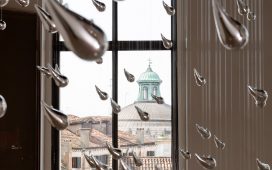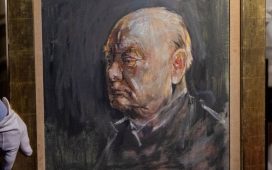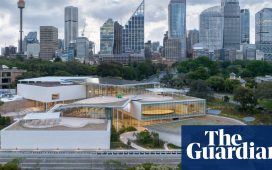There are as many reasons to applaud the UK government’s decision to pump £1.57bn into the arts as there are theatres, concert halls, galleries, libraries, singers, dancers, acrobats, violinists, costume designers, stagehands, artists, audience members and myriad other people and organisations that will benefit from this injection. The arts sector had been poleaxed by the coronavirus pandemic. While culture, along with nature, has been a source of consolation during recent months, this has mainly applied to those forms enjoyed at home: television, recorded music, books. For live performance and museums, the pandemic has felt more like a kiss of death, as buildings have stood empty and productions have been shelved. The Haymarket Theatre in Leicester and Nuffield Southampton Theatres have already announced that they are closing.
Ministers should have acted sooner. It is more than a month since the German government announced a bailout package including €1bn set aside for culture. But the unexpected generosity of the package announced on Sunday shows that campaigners put the extra time to good use, both in public and private. By persuading the government to invest in the arts, the sector has won an important argument. Not only has the government accepted that the arts are of vital importance to the economy, it has also recognised that their value is not purely instrumental. Oliver Dowden, the culture secretary, described them as “crown jewels” and “the soul of our nation”. Progressives may balk at such language, which is at odds with a more egalitarian, inclusive and internationalist conception of what art is for and about. But we can still be glad that the plays, music, museum collections and public spaces that we value are recognised by the government as being among our most precious national treasures – not least because they have the power to bring us together.
The challenge now is to ensure that anxiety and pessimism do not stifle invention and courage. Six months ago, Arts Council England launched a 10-year plan with a strong emphasis on getting people involved in making art as well as in developing audiences. It was no longer enough to invite people into galleries and theatres to look at things, the strategy recognised. Larger numbers of different kinds of people, including those from marginalised and underrepresented groups and places, must be enabled to join in. Now, with theatres and concert halls emptied out, and artists and all those whose livelihoods depend on them fearful for the future, there will be an inevitable temptation to step back and dig in.
This should be resisted. The work of the coming weeks and months must be to find a way of spending this new public money that strikes a good balance between providing a cushion to institutions and people, including freelancers, facing upheaval, giving them a chance to adapt to changed circumstances, and developing new projects and ideas – particularly in places that have not had a fair share of arts spending in the past. London’s West End is a magnet for tourists and part of an extraordinary theatrical heritage. But the 18th-century theatre in Bury St Edmunds also matters; so does the New Art Gallery in Walsall. So do the aspirations of would-be actors, dancers and poets, young and old, in libraries and evening classes in colleges and towns across the country.
There is no point denying the difficulty of the situation created by coronavirus – as well as the government’s botched handling of it. The last thing that anyone committed to opening up the arts wants to do is to restrict access or raise prices and reduce seating. For now, this may be what health and safety demands. In the slightly longer term, new ways of sharing culture must be devised and tested: more drama on TV and radio, perhaps; more outdoor theatre. It will take all the sector’s combined ingenuity to figure it out. But for now, three cheers for the bailout.








